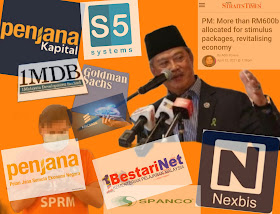The conversation on the concern for food security have long been heard. Since the days of yours truly's early career in banking and later in the capital market, concern over food security due to high food import have long been the talk.
However, a serious government policy was not forthcoming. Availability of land for agriculture was increasing in scarcity and losing to the more lucrative sectors such as property development, tourism and leisure industries, manufacturing, etc.
Financiers were saying why reinvent the wheels as it is more efficient to import. They prefer to invest into food retailing, high-end agri-product, or easy cash crop in which planting is once for every 15 years but harvesting every quarterly.
The attitude then and in fact still remain so. When there was a shortage of chicken prior to GE15, the former PM Ismail Sabri's natural affinity was to import chicken.
This is strange because Malaysia is one of the world's cheapest and efficient broiler producer. So efficient that CP Pokhphand could not enter the highly competitive Teo Chew clan dominated industry. The first sight of problem and government open the local market for foreign entry.
The early part of the shortage in certain food items was blamed at global supply chain problem during the C19 pandemic and later, the war in Ukraine. It rightly is but as time goes by and more realisation creeped in, the age old conversation on food security began to emerge.
In a 2021 article on NST, Muhammad Hisyam Mohamed highlighted the need to deal with issues of availability, access, utilisation and stability in food security. By December 2022, Dr Goh Chun Seng in Borneo Times shifted the food security discussion to food sovereignty.







